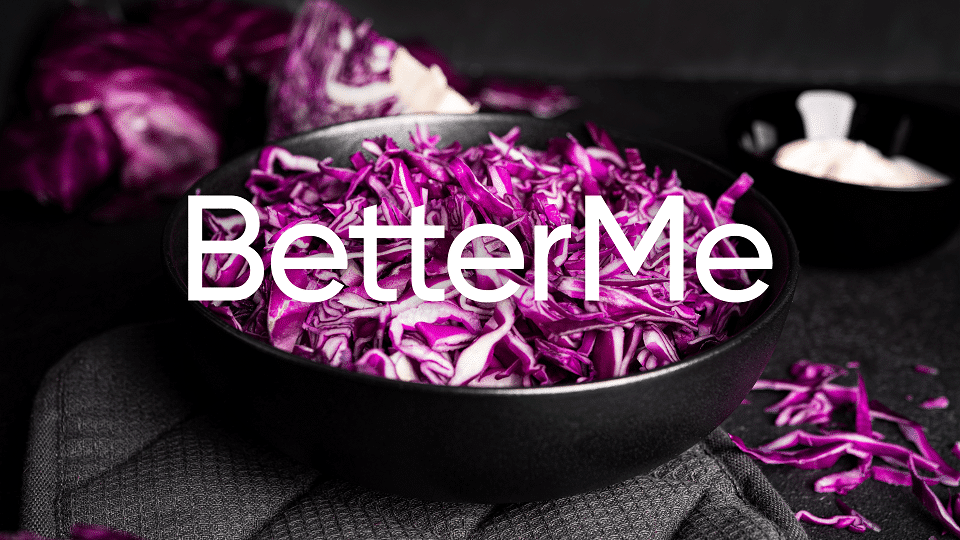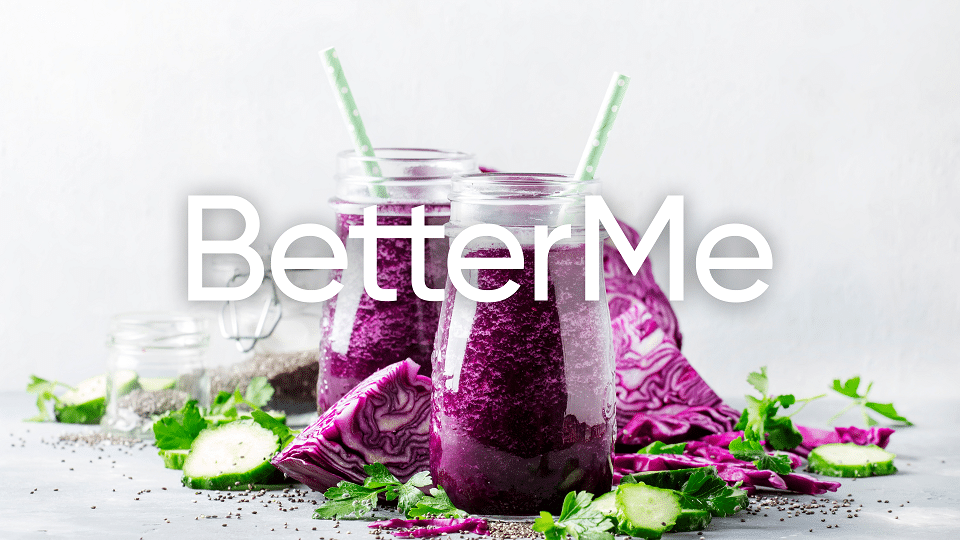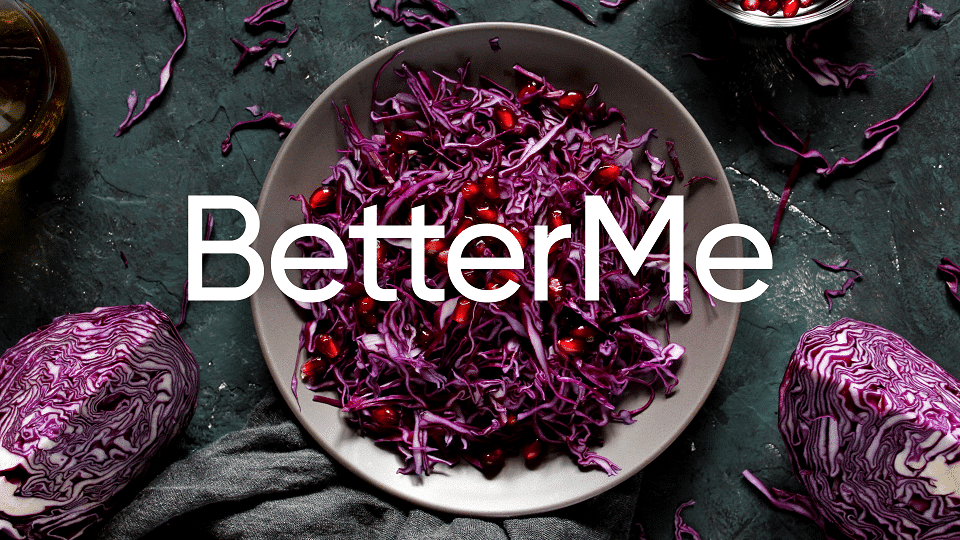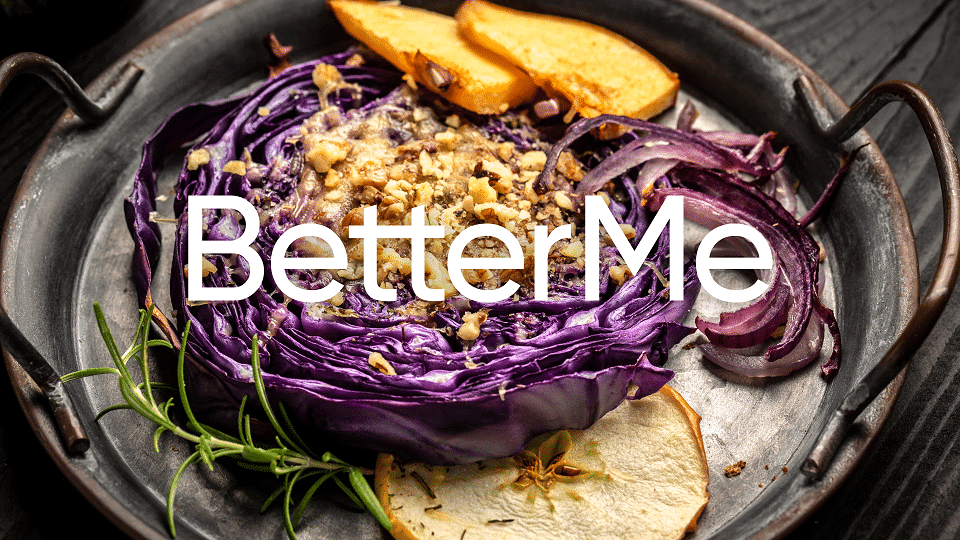The red cabbage is one of the most striking vegetables to grace most dining tables due to its deep rich purple hue. But, regardless of whether it is in a salad, coleslaw, or a stir-fry, the fact is that this vegetable will always steal the spotlight. However, although many may love it due to its bright color, health and food experts believe you should love it for its numerous health benefits. It is linked to a string of health benefits because it contains essential vitamins, minerals, and antioxidants. This read will unveil some of the benefits of red cabbage that you can reap after eating it raw, juiced, or cooked. Similarly, it will also discuss its side effects, plus several ways you can prepare this versatile vegetable. That said, here are the red cabbage benefits and side effects.
What Is Red Cabbage?
It is a cruciferous vegetable that belongs to the same family as broccoli and kale. This cabbage variety is rich in nutrients and has been ranked among healthy foods. However, some people refer to it as purple cabbage because its leaves appear to have a dark reddish-purple color (2).
The cabbage acquires its reddish-purple color from its high flavonoid concentration known as anthocyanin (2). The color is also obtained from the soil’s acidity levels where this cruciferous vegetable is grown.
How Does Red Cabbage Taste?
If you have never tried red or purple cabbage before, you may be curious to know about its flavor profile. Well, most people claim it has a more peppery taste than does green cabbage (2). In terms of size, red cabbage is often smaller than green cabbage and denser (2).
Red Cabbage Nutrition Data
Like the other cabbage varieties, red cabbage is rich in essential nutrients like vitamins C and K (2). Similarly, like most colored vegetables, it is also highly nutritious and has low fat and calorie count (2). According to WebMD, a one-cup serving of chopped red cabbage weighing roughly 89 g provides you with the following (2):
- Calories- 22
- Protein- 1 g
- Fat- 0.1 g
- Carbohydrates- 5 g
- Fiber- 2 g
In addition to that, red cabbage also contains vital vitamins and minerals such as (2):
- Vitamins A, E, and B6
- Potassium
- Folate
- Calcium
- Manganese
- Zinc
- Magnesium
- Thiamin
- Phosphorus
- Riboflavin
It is worth noting that these essential nutrients highly contribute to your recommended daily value. For example, the 89 g serving of the chopped red cabbage contributes to (2):
- 67.6 mcg of vitamin K, which is 85% of the daily value
- 38.3 mcg, which is 10% of the daily value
- 32.6 mcg of vitamin C, which is 54% of the daily value
Read More: Cabbage Soup Diet For 2 Weeks: Is This A Safe Way To Lose Weight?
Health Benefits Of Red Cabbage
Red cabbage has been linked to numerous health benefits due to its rich nutrition profile. Some of the scientifically backed-up benefits of consuming this cabbage variety include:
Reduced Cancer Risk
One of the most significant benefits of consuming red cabbage is its ability in preventing cancer. According to Medical News Today, red cabbage contains a powerful antioxidant known as anthocyanin (5).
This antioxidant gives red cabbage and other purple fruits and vegetables their vibrant reddish-purple colors (5). Besides that, this antioxidant has also been shown to prevent cancer.
Research conducted in the laboratory shows that anthocyanins can slow cancer cell proliferation and kill already formed cancer cells. They can also stop the formation of new tumor growths, which could potentially help with cancer prevention (5). Please note, because this research was conducted in the lab, it is unclear if the same treatment effects apply in humans.
Better Bone Health
Red cabbage is also loaded with several nutrients that support bone health. One of them is magnesium. Although most people only know of calcium and vitamin D, magnesium also plays a vital role in bone health.
According to Medical News Today, magnesium regulates calcium and vitamin D levels to create a healthy and vital balance for bone health (8). Similarly, this mineral also increases bone density and bone crystal formation. These have been shown to help reduce osteoporosis risk in women after menopause (8).
Similarly, this vegetable also contains vitamin K, one of the most significant vitamins for healthy bone formation. Research shows that it increases bone mineral density (7). In addition, it has been shown to help with bone metabolism and calcium balance, which is vital for healthy bone development (7).
Better Heart Health
A healthy heart is a crucial indicator and gateway to overall good health. So, you need to take care of your heart. In addition, you are always advised to embrace a healthy lifestyle to promote good heart health in most cases.
This entails exercising and eating right. One food you can consume to help reap this benefit of good heart health is red cabbage. Scientists reveal that eating red cabbage promotes better heart health due to its anthocyanin content.
Anthocyanins, for one, may help reduce blood pressure. High blood pressure is one of the risk factors for cardiovascular disease (2). Similarly, these substances may help reduce cholesterol and triglyceride levels, other risk factors of cardiovascular diseases like coronary heart disease (2).
Better Digestive Health
Eating red cabbage can also improve your digestive health due to its high fiber content. Fiber eases digestion and keeps food moving easily through your digestive system. As a result, you have a lower risk of experiencing constipation (2).
Similarly, the soluble fiber is a prebiotic which benefits healthy bacteria in your gut that boost digestive health (2).
Eating fermented red cabbage can also benefit your digestive health. Eating fermented foods may help promote the balance of microbes and probiotics in your gut and strengthen your intestines (2).
May Slow The Aging Process
Although aging is a natural and inevitable biological process, consuming a healthy diet is believed to help slow its signs. Scientists argue that the free radical theory of aging emanates from oxidative stress that damages several cell components.
As a result, this triggers pathways that influence cellular processes associated with aging (4). However, research shows that antioxidants reduce oxidative stress levels and might possibly be used to reduce aging effects (4).
Red cabbage juice has even been shown to extend the lifespan of roundworms in the lab (4).
May Promote Weight Loss
Eating red cabbage has also been linked to weight loss because of its high fiber and water content. These two keep you full longer, eliminating the chances of overeating. Similarly, red cabbage has few calories and is an excellent low-calorie food option to help you maintain a calorie deficit for weight loss.
Whether you’re looking to simply pep up your fitness routine, jazz up your diet with mouth-watering low-calorie recipes or want to get your act together and significantly drop that number on your scale – BetterMe app has got you covered! Improve your body and revamp your life with us!
How To Prepare Red Cabbage
Like other cabbage varieties, red cabbage is highly versatile, meaning there are numerous ways to prepare it. But before we look at some ways to prepare it, let us first share some tips when buying red cabbage (2):
- Pick a heavy and firm one.
- Select one whose outer leaves have not been damaged. They should be crisp instead of puffy. Similarly, do not choose any red cabbage if its outer leaves have been removed.
- Pick one with a bright or vibrant purple-reddish color.
All these are indicators that the cabbage you have chosen is fresh and can be eaten raw or when sautéed, steamed, or fermented. However, before you follow any preparation method, be sure to remove the first few outer leaves. Similarly, wash it thoroughly using running water. Now here are some techniques that you can consider if you want to eat red cabbage (2).
- Chop it up and make coleslaw or a healthy salad.
- Steam it slightly and have it as a side dish.
- Steam it and add it to dumpling fillings.
- Add it to soups or stews.
- Add it to a potato hash for more color, flavor, and nutrients.
- Roast it with bacon.
- Pickling it.
- Juicing it or adding it to a healthy smoothie.
- Ferment it to make sauerkraut or kimchi.
- Simmer or braise it with apples and spices and have it as a side dish.
- Have them as slaw alongside tacos.
- Prepare cider-braised red cabbage wedges.
These are some of the many ways you can prepare this cruciferous vegetable. However, as you prep it, you may notice that its purple color may run out, yet you may want the color to elevate your dish. So, you are advised to wash the vegetable with vinegar to prevent the rich purple color from running (6).
What Is The Best Portion Size Of Red Cabbage?
It all depends on your food ratio. Even a fairly large portion has relatively few calories. However, because red cabbage is high in water and fiber, you may end up eating a small portion and feeling full. On the other hand, it makes it an excellent vegetable for most dieters because the high fiber limits the number of calories consumed. Even so, please consult with your nutritionist on the best servings, whether you have it as a side dish, salad, or main dish.
Read More: Fat Burning Cabbage Soup: Kick-Start Your Weight Loss With This Recipe
Can I Eat Red Cabbage Every Day?
Red cabbage is an exceptionally nutritious and healthy vegetable. Its impressive nutrition profile may have you considering adding this vegetable to your diet. But can you have it every day? No research is yet to show any side effects linked to consuming red cabbage daily. However, you are advised to consult with a professional despite the lack of information.
Red Cabbage Side Effects
Unfortunately, despite the incredible nutrition profile and health benefits, eating red cabbage has several side effects. Unfortunately it is not suitable for everyone because of the following drawbacks:
Hypothyroidism
The primary concern associated with eating red cabbage or any other cabbage variety is hypothyroidism. Cruciferous vegetables have goitrogenic properties that can interfere with thyroid function, especially if you also don’t get enough iodine (1). Cooking these vegetables may help reduce this effect, but talk to your doctor about cruciferous vegetable intake if you do have a history of hypothyroidism.
Allergies
Eating red cabbage may result in allergies if you are allergic to vegetables from the Cruciferae or Brassicaceae family (1). This family includes vegetables such as Brussels sprouts, broccoli, cauliflower, and of course, cabbage. Therefore, it is essential to check in with your doctor if you have allergies or are unsure, especially if you have never had red cabbage before.
May Affect Blood Sugar Levels
WebMD reveals that cabbage might affect (lower) blood sugar levels in individuals with diabetes. So, be sure to check in with your doctor if you have diabetes and are interested in consuming red cabbage.
Similarly, you are advised to be on the lookout for signs of hypoglycemia (low blood sugar). According to WebMD, most individuals experience hypoglycemia symptoms when their blood sugar level is 70 milligrams per deciliter (mg/dL) or lower (3).
Note that each person with diabetes experiences different hypoglycemia symptoms. Some will experience early symptoms like dizziness, confusion, pale skin, irritability, weakness, trembling, headaches, hunger, sweating, anxiety, racing pulse, and feeling shaky (3).
You may experience some of these symptoms, and another person may experience different but still among this list. So, carefully monitor your blood sugar levels if you have diabetes and add this vegetable to your diet. Similarly, seek medical attention for your symptoms because their severity may increase over time.
If you struggle to even flirt with the idea of giving up your favorite foods or working out till your legs give way – BetterMe app is here to breathe a fresh perspective into the way you view the weight loss process! Check out the app and experience the fun side of fitness and dieting with BetterMe!
Surgery Interference
WebMD also reveals that consuming cabbage may affect your surgical procedure, regardless of the variety (1). We earlier discussed how eating cabbage may affect your blood glucose levels. Unfortunately, this effect impacts your surgical procedures.
The changes in your blood sugar levels after eating cabbage may affect your blood sugar control during and after your surgical procedure. So, you are advised to talk to your doctor about what you can and cannot eat before your surgery.
Medication Interaction
Another side effect of adding red cabbage is that it might interfere with several medications. For example, consuming any cabbage variety like red cabbage may affect the effectiveness of acetaminophen in your body.
Experts reveal that your body breaks down medications like Tylenol and acetaminophen to get rid of them. When you eat cabbage, this vegetable increases the breakdown of these medications, decreasing their effectiveness (1). The same may happen with other medications which are broken down by the liver.
In light of this, you are urged to talk to your doctor about a good diet whenever they prescribe medicine. Also, be sure to double-check if taking cabbage can affect the effectiveness of other medications, especially those changed and broken down by the liver (1).
The Bottom Line
Red cabbage is also known as purple cabbage due to its dark reddish-purple color. It is one of the most nutritious vegetables and has been linked to several health benefits. Some of the benefits of red cabbage include stronger bones, improved digestion, and heart health, weight loss, and reduced cancer risk.
However, it has been linked to several drawbacks due to its classification in the Brassicaceae family. They include blood sugar, surgery and medication effectiveness interference, allergies, and hypothyroidism. In light of this, we urge you to talk to your doctor before adding this vegetable to your diet.
Get your personalized
meal plan!
DISCLAIMER:
This article is intended for general informational purposes only and does not serve to address individual circumstances. It is not a substitute for professional advice or help and should not be relied on for making any kind of decision-making. Any action taken as a direct or indirect result of the information in this article is entirely at your own risk and is your sole responsibility.
BetterMe, its content staff, and its medical advisors accept no responsibility for inaccuracies, errors, misstatements, inconsistencies, or omissions and specifically disclaim any liability, loss or risk, personal, professional or otherwise, which may be incurred as a consequence, directly or indirectly, of the use and/or application of any content.
You should always seek the advice of your physician or other qualified health provider with any questions you may have regarding a medical condition or your specific situation. Never disregard professional medical advice or delay seeking it because of BetterMe content. If you suspect or think you may have a medical emergency, call your doctor.
SOURCES:
- Cabbage – Uses, Side Effects, and More (2020, webmd.com)
- Health Benefits of Red Cabbage (2020, webmd.com)
- Hypoglycemia: When Your Blood Sugar Gets Too Low (2020, webmd.com)
- Red Cabbage Rather Than Green Cabbage Increases Stress Resistance and Extends the Lifespan of Caenorhabditis elegans (2021, ncbi.nlm.nih.gov)
- The health benefits of cabbage (2017, medicalnewstoday.com)
- Top 10 red cabbage recipes (2022, bbcgoodfood.com)
- Vitamin K and bone health (2001, pubmed.ncbi.nlm.nih.gov)
- Why do we need magnesium? (2020, medicalnewstoday.com)














